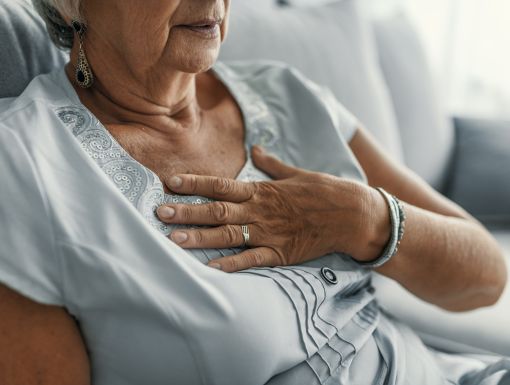
What is AFib? Expert Advice From a Cardiac Electrophysiologist
AFib, or atrial fibrillation, is a type of arrhythmia, a problem with the speed or rhythm of your heartbeat. AFib is one of the most common heart rhythm disorders worldwide. While it often goes unrecognized, it can quietly increase your risk for serious complications like stroke and heart failure. Knowing the facts about AFib can help you protect your heart and your long-term health.
What is AFib?
Atrial fibrillation (AFib) is a common and complex form of arrhythmia, meaning your heart’s rhythm and/or speed is abnormal. In a healthy heart, the upper chambers (atria) and lower chambers (ventricles) beat together in a coordinated way. With AFib, the electrical signals in the atria become chaotic, causing the upper chambers to quiver instead of contracting properly. This disrupts the heart’s normal rhythm and can make the lower chambers beat irregularly or too quickly.
One specific concern in AFib is when these rapid, irregular signals cause the ventricles to beat too fast, a state called rapid ventricular rate, or RVR. RVR can limit the heart’s ability to fill with blood before each beat, reducing how effectively it can pump blood throughout the body.
AFib sometimes causes noticeable symptoms, such as heart palpitations, fatigue, dizziness or shortness of breath, but it can also be silent, discovered only during a medical exam. Even in the absence of symptoms, AFib allows blood to pool in the atria, raising the odds that a clot could form and travel to the brain, resulting in a stroke. Over time, an untreated or poorly controlled AFib can also weaken the heart, leading to heart failure and significantly affecting your quality of life.
Why does AFib matter?
AFib is not just an irregular heartbeat, it’s a serious condition that demands medical attention. Early detection and proactive management are essential to reduce the risk of stroke, heart failure and other complications. If you experience episodes of heart flutters, persistent fatigue or unexplained breathlessness, it’s important to talk to a healthcare professional.
What causes AFib to start?
AFib can develop for many reasons, but certain factors raise your risk:
- High blood pressure: Over time, it stresses your heart and increases AFib risk
- Heart valve disease: Damaged valves disrupt blood flow and electrical impulses
- Age: Your risk climbs as you get older, especially after 65
- Obesity and sleep apnea: Both can strain your heart and disrupt its electrical pathways
- Excessive alcohol use: Even occasional overuse, sometimes called “holiday heart syndrome,” can trigger AFib episodes
- Other health conditions: Thyroid problems, diabetes, chronic lung disease and prior heart surgery can all play a role
- Family history: Genetics can make you more likely to develop AFib
- Lifestyle choices: Smoking and inactivity add to the risk
Not all cases can be linked to one specific cause, which is why a thorough health evaluation is critical.
What are the symptoms of AFib?
AFib presents differently for everyone, some feel every irregular beat, while others may not notice any warning signs at all. Recognizing symptoms early can help you to seek timely care and reduce your risk of complications. Watch for these key symptoms:
- Palpitations or heart flutters: You may feel your heart fluttering, pounding or skipping beats
- Fatigue or weakness: Unusual tiredness or a lack of energy that doesn’t match your activity level
- Shortness of breath: Difficulty breathing during everyday activities or even at rest
- Dizziness or lightheadedness: Sudden feelings of faintness or instability, without a clear cause
- Chest pain or discomfort: This can range from mild pressure or tightness to pain and sometimes worsens with exertion
- Exercise intolerance: Reduced ability to exercise or be active without feeling unwell
Silent AFib is also possible, meaning you could have the condition without experiencing any noticeable symptoms. Routine physicals and heart screenings are the best way to identify and treat AFib early, protecting your heart and overall health.
How is AFib diagnosed?
Detecting AFib usually starts with your healthcare provider listening to your heart and noting your symptoms and medical history. But since AFib can come and go, further steps are often needed:
- Electrocardiogram (ECG/EKG): This non-invasive test shows your heart’s electrical activity and can confirm AFib if you’re having an episode
- Holter monitor: Wearable device that records your heartbeat over 24 - 48 hours, catching episodes that a standard EKG might miss
- Event monitors/wearables: Used for longer-term monitoring if AFib is infrequent
- Echocardiogram: Uses ultrasound to check your heart’s structure and function
- Blood tests: Help identify causes like thyroid disorders or imbalances
Timely diagnosis is key; it opens the door to effective, potentially life-saving treatment and helps prevent dangerous complications.
What are the treatments for AFib?
While AFib can’t always be cured, it can be managed with a patient-centered approach that helps many people to live active, healthy lives. Your care team will consider the duration and type of your AFib, your symptoms and your overall health to develop a tailored treatment plan. Common treatments include:
- Lifestyle modifications
- Maintaining a heart-healthy diet, managing blood pressure and cholesterol, reaching and keeping a healthy weight, exercising regularly (as your doctor advises), limiting alcohol and caffeine intake, and treating conditions like sleep apnea.
- Quitting smoking and managing stress also play a critical role in overall heart health and the management of AFib
- Medications
- Anticoagulants (blood thinners): Reduces the risk of stroke
- Rate control drugs (beta blockers, calcium channel blockers): Help slow your heart rate down, making symptoms manageable and helping your heart function more effectively
- Rhythm control drugs (antiarrhythmics): Used to restore and maintain a normal heart rhythm
- Procedures
- Cardioversion: Under sedation, uses electrical shock or medication to reset heart rhythm
- Catheter ablation: A minimally invasive procedure in which a catheter is threaded through a blood vessel to reach the heart. The abnormal tissue causing the irregular rhythm is then neutralized with either thermal energy or by applying a special electrical waveform.
- Surgical maze procedure: During open-heart surgery, a surgeon creates a pattern of scar tissue in the atria to disrupt the abnormal electrical signals
In addition to these treatments, comprehensive management includes regular follow-up, ongoing monitoring and collaboration with your care team to make adjustments as needed. Many people benefit greatly from screening and treatment of contributing conditions, such as sleep apnea and high blood pressure, that can worsen AFib.
Through the right combination of treatments and healthy lifestyle changes, it is possible to control symptoms, lower the risk of complications such as stroke and heart failure, and improve your quality of life.



